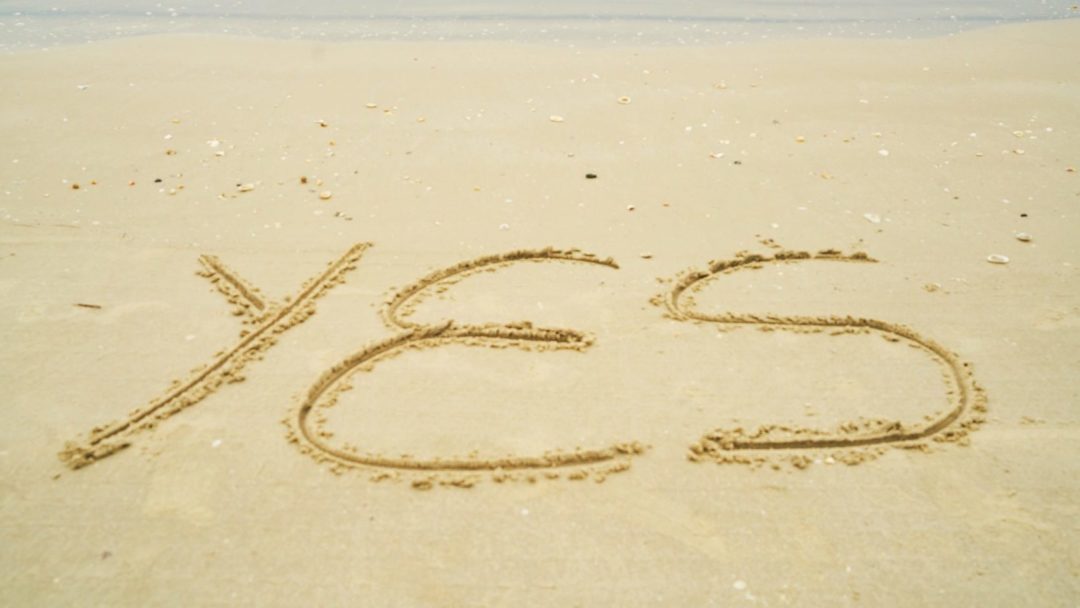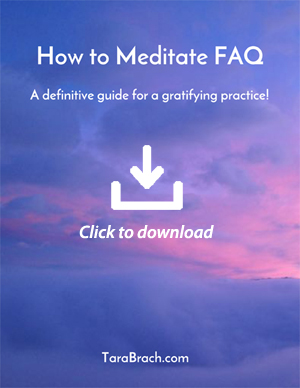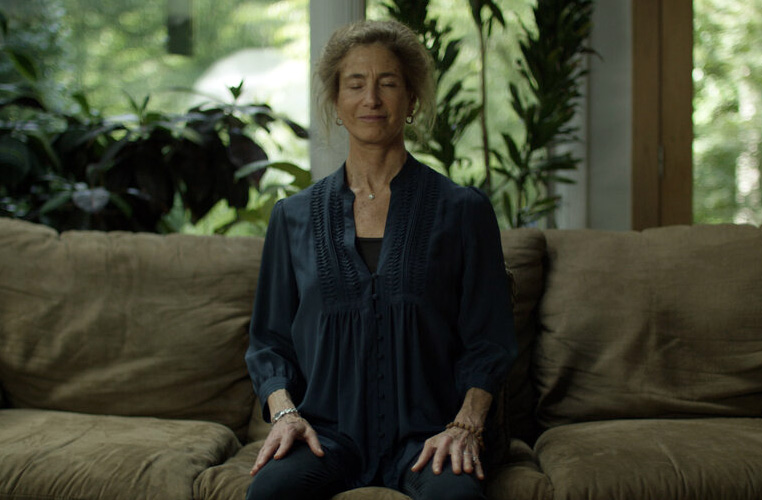by Tara Brach
Some years ago, in the middle of a weeklong vipassana retreat, I found myself swamped in negativity. I reacted with aversion to every facet of life around me. The teachers were talking too much; the cold, cloudy weather was disappointing; my fellow meditators were inconsiderately sneezing in my direction, and I already had an irritating sinus infection myself. Nothing was going right, especially me.
Tired of the aversion, I decided that instead of resisting everything, I would begin to greet whatever arose in my awareness with a silently whispered “Yes.” Yes to the pain in my leg, Yes to the blaming thoughts, Yes to the sneezes and the irritation and the gloomy gray sky.
At first, my Yes was mechanical, grudging, and insincere, but even so, each time I said it, I could feel something relax in me. Before long, I started to play around with it, holding the intention to not only to accept what I was feeling but to actively welcome it. I began to offer the Yes with a softer, more friendly tone. I even smiled from time to time—my whole drama started to seem silly. My body and mind grew steadily lighter and more open. Even the pressure in my sinuses began to ease up.
After a while, the dark cloud of No was replaced by the expansive sky of a Yes that had endless room for grouchiness and irritation. Critical comments continued to arise, and with Yes they continued to pass. When my mind suggested that I was using a gimmick that wouldn’t work for long, saying Yes to the story allowed the thought to dissolve. I wasn’t resisting anything or holding onto anything. Moods and sensations and thoughts moved through the friendly skies of Radical Acceptance.
We bring alive the spirit of Radical Acceptance when, instead of resisting emotional pain, we are able to say Yes to our experience. The instant we agree to feel fear or vulnerability, greed or agitation, we are holding our life with an unconditionally friendly heart.
When I introduce the practice of Yes to students, it often brings up objections or confusion. Isn’t just another shallow version of “positive thinking,” a way to gloss over the reality of how hard life can be? Certainly, they object, we can’t say Yes to everything we experience. What if we wanted to hurt somebody? Or what if we’re experiencing deep depression? Wouldn’t saying Yes feed those states?
Saying Yes does not mean approving of angry thoughts or sinking into any of our feelings. We are not saying Yes to acting on our harmful impulses. Nor are we saying Yes to external circumstances that can hurt us: If someone is treating us abusively, certainly we must strongly say No and create intelligent boundaries to protect ourselves in the future. Even in that instance, however, we can still say Yes to the experience of fear, anger or hurt that is arising inside us. Yes is an inner practice of acceptance in which we willingly allow our thoughts and feelings to naturally arise and pass away.
Because our habits of rejecting pain are so ingrained and we are so addicted to appearing in control, the practice of saying Yes may seem to be pretentious. Students sometimes ask, “If we are filled with thoughts of hatred towards ourselves, won’t our attempts at friendly acceptance just cover over what we really feel?”
It’s a good question. As we know from relating to others, we can act friendly while actually harboring tremendous judgment and distaste. The challenge at these times is, can we bring a friendly attention to just how unfriendly we feel? Can we see clearly what we are experiencing, and say Yes to the huge force of No? And if we can’t manage that, we can at least intend to be friendly.
It’s also easy to mistakenly consider Yes as a technique to get rid of unpleasantness feelings and make us feel better. Saying Yes is not a way of manipulating our experience but rather an aid to opening to life as it is. While we might, as I experienced on retreat, say Yes and feel lighter and happier, this is not necessarily what happens. If we say Yes to a feeling of sadness, for instance, it might swell into full blown grieving. Yet regardless of how our experience unfolds, by agreeing to what is here, we offer it the space to express and move through us.
I do caution my students, however, that it is not always wise to say Yes to inner experience. If we have been traumatized in the past, old feelings of terror may be triggered. We might not have the balance or resiliency in a particular moment to meet our experience with unconditional friendliness, and our attempts at Yes might actually end up flooding us with fear. It would be better instead to find a way to alleviate the fear, perhaps by seeking comfort with a friend, doing vigorous exercise, or taking prescribed medication. For the time being, saying No to what feels like too much, and Yes to what simply works to keep us balanced, is the most compassionate response we can offer ourselves.
In Pali, the language of the Buddha, the word for friendliness, metta, is also translated as lovingkindness. When we say a friendly Yes to our experience, we awaken the healing power of love. It is this response of the heart that moves us towards healing. In a very physical and immediate way, saying Yes helps to dissolve the feeling that “something is wrong,” and relax our deepest doubts and fears. As Rachel Naomi Remen puts it, “One moment of unconditional love may call into question a lifetime of feeling unworthy and invalidate it.” It’s hard to overestimate the power of Yes—it is a medicine that uplifts and frees our spirit.


